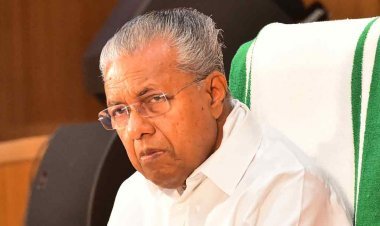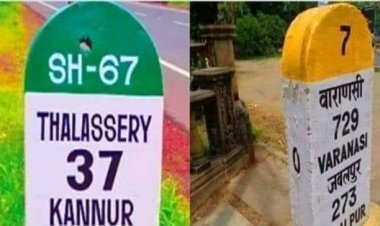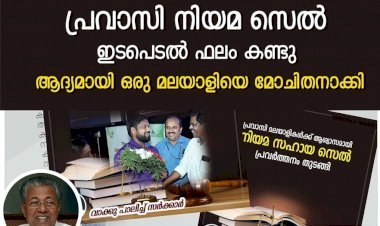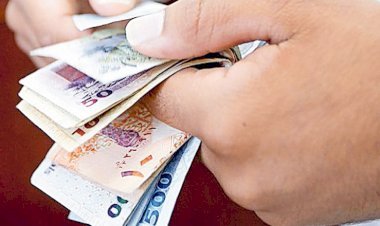Presumptive Income u/s. 44AD, 44AE and 44ADA
Presumptive taxation in general involves the use of indirect methods to ascertain the tax liability which differs from the usual rules for ascertaining the tax liability. The term presumptive is used to indicate, there is a legal presumption that the tax payers income is no less than the amount resulting from application of indirect method.1 In the Indian context, the rules for presumptive taxation are covered under sections 44AD, 44ADA, 44AE, 44B, 44BB, 44BBA and 44BBB of the Income Tax Act 1961( Herein after referred to as “The act”). The reason for the scheme of presumptive taxation to be popular is, other than a few specified cases the assessee offering income on a presumptive basis is not required to maintain books of accounts as specified under section 44AA of the act and the compliance cost is also reduced to a substantially minimal level.
The scheme of presumptive taxation was introduced by Finance Act, 1988 by way of Section 44AC, the presumption created by section 44AC was irrebuttable. Since the section could not achieve the desired results, it was deleted by Finance Act, 1992 and Chapter XII C was introduced. Then based on the recommendations of the Raja J. Chelliah’s tax reforms committee, sections 44AD,44AE, were introduced by Finance Act, 1994. Section 44AD introduced by Finance Act, 1994 was available only for construction contractors. To provide relief to small tax payers, section 44AF was introduced by Finance Act, 1997. Section 44AF was applicable for persons engaged in the retail business. The scope of presumptive income is expanded to all businesses by Finance act 2 of 2009 by means of substitution of section 44AD and concomitantly section 44AF was omitted. The scope of presumptive income was further widened to cover specified professionals by way of introduction of Section 44ADA by Finance Act, 2016. In this article an attempt is made to provide insights on section 44AD, 44ADA and 44AE which are applicable for residents and issues revolving around the same.
Presumption of Income
- Section 44AD
To help a number of small businesses to comply with the taxation provisions without consuming their time and resources as per section 44AD(1), in case of an eligible person who is engaged in the eligible business the income shall be 8% of total turnover or gross receipts or such other sum higher than 8% claimed to have been earned by the assessee.
To promote digital transactions and to encourage small unorganized businesses to accept digital payments, finance act 2017 substituted the words 6% as against 8% If the amounts are received by way of account payee cheque, account payee draft, Credit Card, Debit Card, Net Banking, IMPS (Immediate Payment Service), UPI (Unified Payment Interface), RTGS (Real Time Gross Settlement), NEFT (National Electronic Funds Transfer), BHIM (Bharat Interface for Money) Aadhaar Pay.2 The relevant extract of section is reproduced herewith,
1 Tax law design and drafting (Volume -1 : International monetary fund 1996 ; Victor Thuronyi Chapter 12 – presumptive taxation)
44AD. (1) Notwithstanding anything to the contrary contained in sections 28 to 43C, in the case of an eligible assessee engaged in an eligible business, a sum equal to eight per cent of the total turnover or gross receipts of the assessee in the previous year on account of such business or, as the case may be, a sum higher than the aforesaid sum claimed to have been earned by the eligible assessee, shall be deemed to be the profits and gains of such business chargeable to tax under the head "Profits and gains of business or profession" :
[Provided that this sub-section shall have effect as if for the words "eight per cent", the words "six per cent" had been substituted, in respect of the amount of total turnover or gross receipts which is received by an account payee cheque or an account payee bank draft or use of electronic clearing system through a bank account 60[or through such other electronic mode as may be prescribed61] during the previous year or before the due date specified in sub- section (1) of section 139 in respect of that previous year.]
For an assessee to opt for section 44AD, he should satisfy two conditions namely, assessee should be an eligible assessee and the business in which the assessee is engaged should be an eligible business. The term eligible assessee is defined by explanation 1 to section 44AD, and term eligible business is defined by explanation (b) to section 44AD which reads as under,
Explanation.—For the purposes of this section,—
- "eligible assessee" means,—
- an individual, Hindu undivided family or a partnership firm, who is a resident, but not a limited liability partnership firm as defined under clause (n) of sub-section (1) of section 2 of the Limited Liability Partnership Act, 2008 (6 of 2009); and
- who has not claimed deduction under any of the sections 10A, 10AA, 10B, 10BA or deduction under any provisions of Chapter VIA under the heading "C. - Deductions in respect of certain incomes" in the relevant assessment year;
- "eligible business" means,—
- any business except the business of plying, hiring or leasing goods carriages referred to in section 44AE; and
- whose total turnover or gross receipts in the previous year does not exceed an amount of two crore rupees.
As per the aforementioned explanations, Individuals, HUF’s and partnership firms other than LLP’s can opt for section 44AD if such persons have not claimed deductions under aforementioned sections. The turnover criteria to opt for section 44AD is 2 crores and the business of plying, hiring and leasing of goods carriage is ineligible to opt for section 44AD. In the Finance Act 2012, with retrospective effect from AY 11-12 a new subsection was introduced, which created a restrain on certain persons who are engaged in professions specified under section 44AA, earning income in the nature of commission or brokerage or persons carrying on agency business to opt for section 44AD. The extract of the section is reproduced herewith.
- The provisions of this section, notwithstanding anything contained in the foregoing provisions, shall not apply to—
- a person carrying on profession as referred to in sub-section (1) of section 44AA;
- a person earning income in the nature of commission or brokerage; or
- a person carrying on any agency business.
2 Rule 6ABBA - Inserted by the IT (Third Amdt.) Rules, 2020, w.r.e.f. 1-9-2019.
Section 44ADA
To rationalize the presumptive taxation scheme and to reduce the compliance burden of the small tax payers having income from profession and to facilitate the growth of professionals section 44ADA was introduced by Finance Act, 2016 w.e.f AY 2017-18.
Liken section 44AD, assessee can offer income under section 44ADA of the act if he is an Individual or partnership firm other than LLP and is engaged in the profession referred under section 44AA(1). The turnover of the assessee should not exceed INR 50 Lakhs to be eligible to opt for this section. Juxtapose to 8% in the case of 44AD, 50% of the turnover or gross receipts or such higher sum claimed to have been earned by the assessee is deemed to the income. The relevant extract of the section is reproduced herewith,
- Notwithstanding anything contained in sections 28 to 43C, [in case of an assessee, being an individual or a partnership firm other than a limited liability partnership as defined under clause
- of sub-section (1) of section 2 of the Limited Liability Partnership Act, 2008 (6 of 2009), who is a resident in India, and] is engaged in a profession referred to in sub-section (1) of section 44AA and whose total gross receipts do not exceed fifty lakh rupees in a previous year, a sum equal to fifty per cent of the total gross receipts of the assessee in the previous year on account of such profession or, as the case may be, a sum higher than the aforesaid sum claimed to have been earned by the assessee, shall be deemed to be the profits and gains of such profession chargeable to tax under the head "Profits and gains of business or profession".
The professions specified under section 44AA is
- Legal
- Medical
- Engineering
- Architectural profession
- The profession of accountancy
- Technical consultancy
- Interior decoration
- Authorised representative,
- Film artist (actor, cameraman, director, music director, art director, dance director, editor, singer, lyricist, story writer, screen play writer, dialogue writer and dress designer)3,
- Company Secretary4 and
- Information technology professional5.
3 Notification : No. SO 17(E), dated 12-1-1977
4 Notification : No. SO 2675, dated 25-9-1992
5 Notification : No. SO 385(E), dated 4-5-2001.
Section 44AE
Section 44AE has been inserted by Finance Act, 1994 w.e.f AY 94-95 with a view to provide a method for of estimation of income from the business of plying, hiring or leasing trucks owned by a taxpayer. The scheme applies to persons owning not more than ten trucks. It is not applicable to the persons who do not own any truck but operate trucks taken on hire. The income from each truck, being a heavy goods vehicle, will be estimated at Rs. 1,000/ton for every month or part of a month of the unladen weight during which the truck is owned by the assessee. The income from each truck, other than a heavy goods vehicle, will be estimated at Rs. 7500 for every month or part of a month during which the truck is owned by the assessee. In either case, the taxpayer can declare his income from trucks at a higher amount than that specified above. The extract of the section is reproduced herewith,
44AE (1) Notwithstanding anything to the contrary contained in sections 28 to 43C, in the case of an assessee, who owns not more than ten goods carriages at any time during the previous year] and who is engaged in the business of plying, hiring or leasing such goods carriages, the income of such business chargeable to tax under the head "Profits and gains of business or profession" shall be deemed to be the aggregate of the profits and gains, from all the goods carriages owned by him in the previous year, computed in accordance with the provisions of sub-section (2).
- For the purposes of sub-section (1), the profits and gains from each goods carriage,—
- being a heavy goods vehicle, shall be an amount equal to one thousand rupees per ton of gross vehicle weight or unladen weight, as the case may be, for every month or part of a month during which the heavy goods vehicle is owned by the assessee in the previous year or an amount claimed to have been actually earned from such vehicle, whichever is higher;
- other than heavy goods vehicle, shall be an amount equal to seven thousand five hundred rupees for every month or part of a month during which the goods carriage is owned by the assessee in the previous year or an amount claimed to have been actually earned from such goods carriage, whichever is higher.]
Meaning of turnover or gross receipts
Section 44AD deems 8% of turnover or gross receipts as income and section 44ADA deems 50% of total gross receipts as income. However, the terms “turnover” and “gross receipts” has not been defined in the act. As per section 2(91) companies act 2013, turnover means
“The aggregate value of the realisation of amount made from the sale, supply or distribution of goods or on account of services rendered, or both, by the company during a financial year”.
The term “Gross receipts” as per guidance note on tax audit by ICAI, means
“It will include all receipts whether in cash or in kind arising from carrying on of the business which will normally be assessable as business income under the Act.”
Generally, gross receipt means the monies which are received by the assessee whether from business or not. However, based on the principal of ejusdem generis for the purpose of section 44AD the scope of the words “gross receipts” has to be confined to receipts from business only since it follows the word turnover which means the sales effected in the course of business and doesn’t include capital receipts.
Since the term “gross receipts” is being used under section 44AD, it was ambiguous as to whether the remuneration or salary received by the assessee from the partnership is eligible for offering to tax under the presumptive scheme.
The Kolkata tribunal in the case of Amal Ganguli vs CIT6 held that salary or gross receipts received by the assessee from the partnership firm is a gross receipt and is required to be included in the process of computing the total turnover to determine the applicability of tax audit.
The Hon’ble Madras high court in the case of Anand Kumar vs ACIT7, has held that since no business is carried on by the assessee and the business is carried on by the partnership firm, the assessee doesn’t have a turnover or gross receipts and cannot offer income under the presumptive scheme.
“The assessee should establish that he is an eligible assessee engaged in an eligible business and such business should have a total turnover or a gross receipt. Admittedly, the assessee who is an individual in the instant case is not carrying on any business. Therefore, the remuneration and interest received by the assessee from the partnership firm cannot be termed to be a turnover of the assessee [individual]. Similarly, it will also not qualify for gross receipts”
The aforementioned decision is also affirmed by the Hon’ble Bombay high court in the case of Perizad Zorabian Irani v. PCIT. 8
Considering the conflicting decisions and to protect the intent behind introduction of the section, it is humbly submitted that any clarification from the government in this regard could put rest the controversy.
Expenses
As per subsections (2) of section 44AD, (2) of section 44ADA and (3) of section 44AE, all the expenses under section 30 to 38 be deemed to have been already allowed and no further deductions shall be allowed in this regard. The words connoted under all the 3 sections is similar in this regard.
Since it is deemed that all the expenses are already allowed, it is ambiguous as to whether the disallowances under section 40 to 43B of the act be applicable in case of an assessee offering income under presumptive basis.
Even though there is a slight difference in the terminology used, all the three sections begin with a non-obstante clause which overrides section 28 to 43C. The three main disallowance
6 Amal Ganguli vs DCIT, (ITA NO.2135/Kol/2008)
7 [2020] 122 taxmann.com 252 (Madras) Anandkumar v. Assistant Commissioner of Income Tax, Circle-2, Salem
8 [2022] 139 taxmann.com 164 (Bombay) Perizad Zorabian Irani v.Principal Commissioner of Income-tax
section are section 40, 40A and 43B and it is interesting to note that even these three sections have a non-obstante clause. Section 40 overrides section 30 to 38 of the act, section 40A overrides the sections which provides for computation of income under the head profits and gains of business or profession and section 43B overrides the entire act. The main issue here is, which section would override which section.
As far as section 40 is concerned, barring clause 40(b), it deals with disallowances regar ding payments for non-deduction of TDS under Chapter XVII-B. The argument of revenue is that “the intention of these section is to provide a restriction and dues to the crown has no limitations”, hence disallowance would be attracted under section 40, if TDS is not deducted by the assessee who is offering income under section 44AD. The Surat tribunal in the case of Bipin Chandra Hiralal Thakkar9, has held that section 44AD would override section 40 and if the assessee has committed a default under to deduct TDS, the action can be initiated by the TDS officer and the assessing officer cannot disallow such expense. The relevant extract is reproduced herewith,
“The legal provision of section 44AD of the Act shows an overriding effect over other provisions contained in section 28 to 43C of the Act, I hold that the provisions of section 40(a)(ia) of the Act cannot be invoked in the instant case as the income is directed to be determined on presumptive basis u/s 44AD of the Act”.
However, the Panaji tribunal in the case of Good Luck Kinetic vs ITO10 while examining whether section 43B would be applicable if income is determined on a presumptive basis under section 44AF whose words are similarly worded to the current scheme of presumptive taxation, has held that since the section 43B overrides the entire act, it would override even the non- obstante provided under section 44AF and disallowance under section 43B can be made even if the assessee is offering income under presumptive basis, the relevant extract is attached herewith.
“a perusal of the provisions of Sec. 43B shows that the said provision is a "restriction" on the allowance of a particular expenditure representing statutory liability and such other expenses claimed in the profit and loss account unless same has been paid before the due date of filing the return. The statutory liability in the present case has not been paid before the due date of filing the return. Further, the non-obstante clause in Sec. 43B has a far wider amplitude because it uses the words "notwithstanding anything contained in any other provisions of this Act". Therefore, even assuming that the deduction is permissible or the deduction is deemed to have been allowed under any other provisions of this Act, still the control placed by the provisions of Sec. 43B in respect of the statutory liabilities still holds precedence over such allowance. This is because the dues to the crown has no limitation and has precedence over all other allowances and claims. In these circumstances, we are of the view that the disallowance made by the AO by invoking the provisions of Sec. 43B of the Act in respect of the statutory liabilities are in order even though the Assessee’ s income has been offered and assessed under the provisions of Sec. 44AF of the Act.”
The view of first decision appears to be more logical because when an income is presumptively taxed u/s 44AD of the Act any further business income by applying the provisions of sections
9 [2021] 124 taxmann.com 236 (Surat-Trib.) Bipinchandra Hiralal Thakkar v.Income Tax Officer Ward-1(2)6, Surat*
10 [2015] 58 taxmann.com 267 (Panaji - Trib.) Good Luck Kinetic v. Income-tax Officer, Ward -2, Margao
28 to 43C would get telescoped with the presumptive income determined. To rest the quell it is suggested that a clarification from the board might server the purpose in this regard.
Rebuttable Presumption
The major issue under section 44AC, was that the presumption about income created by the legislature was irrebuttable, to overcome such a difficulty, an option now is given to the assessee to rebut the presumption created by law, i.e., the assessee has an option to offer income lower than the percentages or amounts specified under section 44AD,44ADA and 44AE.
In case of sections 44ADA and 44AE, the law is comparatively simpler to the extent that if the assessee wants to offer income lower than the specified percentage, he is required to maintain books of account and get himself audited under section 44AB.
In the case of section 44AD, till AY 16-17 the law was similar to that of 44ADA and AE.
In the Finance Act, 2016 subsection (4) was introduced which reads as under
“(4) Where an eligible assessee declares profit for any previous year in accordance with the provisions of this section and he declares profit for any of the five assessment years relevant to the previous year succeeding such previous year not in accordance with the provisions of sub-section (1), he shall not be eligible to claim the benefit of the provisions of this section for five assessment years subsequent to the assessment year relevant to the previous year in which the profit has not been declared in accordance with the provisions of sub-section (1).”
For subsection (4) to be applicable the assessee must have opted for section 44AD in one assessment year (Say AY 22-23) and is not offering income as per 44AD for any one of the 5 subsequent year (Say AY 24-25), he is not eligible to opt for section 44AD for the next 5 assessment years ( AY 25-26 – 29-30) and is liable to get himself audited under section 44AB(e) till the end of 5 assessment years ( Till AY 29-30).
It is interesting to note that if the assessee has commenced the business in the current year and the turnover doesn’t exceed the tax audit limit of INR 1 crore, he is actually not liable to audit under 44AB, however the current ITR Forms doesn’t facilitate such an option. Even if the assessee has not opted for section 44AD in any previous year and is having a turnover of less than 2 crores and is declaring income less than 8% or 6% as the case may be, he is mandated to get himself audited under section 44AB which is frivolous and not the provisions of the law. As per the general rule of law, the forms cannot override the act and it is suggested that required changes are made to the e-filing utility.
Issues
Carry forward of unabsorbed depreciation and business loss
Business loss is carried forward and set-off as per section 72 of the act, however carry forward of unabsorbed depreciation is governed by section 32, by means of which the unabsorbed depreciation is added to the depreciation of the next year. All the three sections provide that the deduction under sections 30 to 38 of the act are deemed to have been fully allowed, hence the business loss if any carried forward from the previous year can be set-off against the income computed presumptively. However,
unabsorbed depreciation seems to lapse in the year in which the assessee opts to offer income under presumptive basis. The Pune Bench of tribunal in the case of Dy CIT v. Sunil M. Kankariya 11 has also held in examining section 44AE that the assessee is not allowed to set off the unabsorbed depreciation. Liken the issue discussed in para 5, even in this case the e-filing utility doesn’t allow to set off the carry forward loss against the income computed under presumptive basis, this would also require a change in the e-filing utility.
Interest or remuneration to partners
Deductions under section 30 to 38 of the act are deemed to be allowed. Even though the deduction in respect of interest, remuneration and salary of partners are computed in accordance with section 40(b), it is a disallowance section and not an allowance section. The amount computed under section 40(b) is allowed as a deduction only under section 37 of the act12. Due to this fact there was a dichotomy for ages.
The CBDT vide its Circular no. 684 dated 10 June 1994 while explaining the scope of Sections 44AD and 44AE stated that the deduction under section 40(b) of partners’ salary and interest would be allowed from the income computed on the presumptive basis.
However, later the CBDT issued another Circular No. 737 dated 23 February 1996 holding that Circular No. 684 dated 10 June 1994 was erroneous to the extend it allowed deduction under section 40(b) and deleted the relevant portion of the earlier circular with retrospective effect from 1994.
This gave rise to wide spread litigations but the controversy was laid to rest by the Finance Act, 1997 which inserted the proviso in Sections 44AD and 44AE specifically providing for deduction under section 40(b) with retrospective effect from Assessment Year 1994-95
Section 44ADA does not contain the provision similar to that of Sections 44AD and 44AE extending the deduction under Section 40(b) and more over the Finance Act, 2016 has omitted the said proviso from section 44AD though not from section 44AE.
As we stand today, the interest and remuneration of the partners are allowed if the income is computed as per section 44AE and it is not allowed if the income is computed as per section 44AD and 44ADA.
Opting of both section 44AD and 44ADA
As per section 44ADA, any person who is carrying on any profession mentioned as per section 44AA, can opt in for this section. Section 44ADA doesn’t create any embargo for a person who is also carrying on a business to opt for section 44ADA, however income could be offered under section 44ADA only for the professional income earned by the assessee.
11 Dy. CIT v. Sunil M. Kankariya [2008] 112 ITD 170
12 Munjal Sales Corpn. v. CIT [2008] 168 Taxman 43 (SC)
The sine-qua-non as per section 44AD(6) is that the person should not carry on any profession as specified under 44AA or is earning income in the nature of commission or brokerage.
Hence where an assessee who is earning income from both running a business and profession can opt for offering income under section 44ADA for professional income and shall offer the income from business under normal provisions of the act by maintaining books of accounts however the vice-versa is not possible.
Advance Tax
As per section 208 of the act, every person is liable to pay advance tax if the tax payable is more than INR 10,000, in every quarter. If the assessee is declaring profits under section 44AD or section 44ADA, the entire advance tax shall be due only on 15th of March as per section 211(1)(b) of the act. It is to be noted that if the assessee is offering income under section 44AE, the assessee is liable to pay advance tax in all the 4 quarters since the section is silent on applicability of advance tax for persons offering income under 44AE.
An issue arises if the assessee has income under 44AD or 44ADA, and also income from other sources. It is ambiguous as to how the computation of advance tax liability and interest thereon is to be computed.
Two views are possible, first one being if the assessee is offering income under scheme of presumptive taxation, the liability to pay advance tax exist only in the fourth quarter which seems to be the intention of the law.
The second view is that, practically, while interest under section 234C is computed by the utility, for income other than income offered under presumptive basis, the utility assumes that advance tax liability is for the respective quarters and only for the income offered under presumptive basis the advance tax liability exists in the fourth quarter, which is in contrary to the provisions of the act and requires correction in the utility, for the forms to be in conformity with the act.
Comparison
|
Particulars |
44AD |
44ADA |
44AE |
|
Eligible assessee |
Individual/HUF/Firm(Other than LLP) |
Individual or partnership firm other than LLP's |
Any person |
|
Eligible Business |
Any business except 44AE |
Profession referred to in 44AA |
Plying, hiring or leasing goods carriages |
|
Applicability |
Turnover or gross receipts should not exceed 2 Crores and person should not be engaged in 44ADA profession or agency or commission |
Gross receipts should not exceed 50 Lakhs |
No. of vehicles owned should not exceed 10 at any time during the previous year |
|
Income |
8% or 6% of the turnover |
50% |
7500/month or part of a month(Other than HGV) 1000 per ton(HGV) |
|
Interest and remuneration |
Not allowed |
Not allowed |
Allowed |
|
Tax audit under 44AB |
If 44AD(4) gets attracted |
Income offered is less than 50% and income offered is more than basic exemption limit |
Income offered is less than presumptive income |
|
Higher Income |
Claimed to have been earned by the assessee |
Claimed to have been earned by the assessee |
Actually claimed to have been earned by the assessee (Circular 5/2010 clarifies that the words actually is introduced as a anti abuse provision) |
|
Instalments of advance tax |
100% in last quarter |
100% in last quarter |
All the 4 instalments are applicable |
|
Applicability to non-residents |
Not applicable |
Not applicable |
Applicable |
- Conclusion & Way forward
It would be interesting way forward to check how the courts are interpreting the laws with regards to applicability of 43B, 40A, 40, taxation of interest or remuneration of partners of firms which have opted for presumptive taxation, applicability of section 43CA, applicability and computation of income under presumptive scheme in case of share and VDA traders.
The presumptive taxation which should have been one of the easiest to comply and understand is unfortunately the complex because of the plethora of amendments and judgements. The important reason for introduction of the presumptive scheme of taxation as specified was to reduce the compliance cost and provide a simple scheme of taxation, which unfortunately waded over time.
A simple scheme of presumptive taxation having following characteristics could be considered,
- A simple scheme of taxation based on turnover with varied rates across industries (for two to three years) as provided in safe harbour rules.
- A single form including all the compliances under various acts similar to introduction of spice plus form.
- Establishing a separate helpdesk from the government to facilitate the small taxpayers to understand and comply with the law.
Considering the various reforms of the government in the recent past and the vision of the government to reduce the compliance costs of the businesses which was the reason for increasing the limits of tax audit and abolition of GST audit, it would be a matter of time for these provisions to be overhauled.
What's Your Reaction?













































































